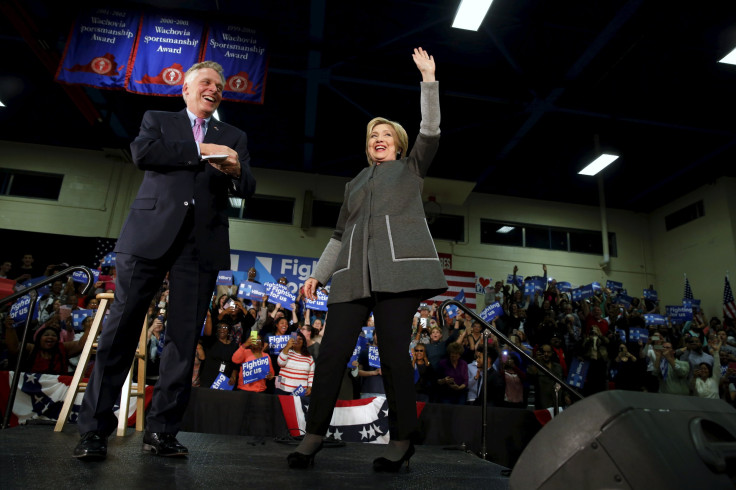Virginia Republicans Want To Keep Blacks, Latinos From Voting? Felon Rights Debated In 2016 Swing State

The Virginia Supreme Court will weigh in a Republican lawsuit Tuesday seeking to strip 206,000 felons of their voting rights ahead of the November presidential election. The former prisoners could help tip the state for Democrat Hillary Clinton in the crucial swing state in her fight for the White House against Republican Donald Trump.
Democratic Gov. Terry McAuliffe restored the rights of hundreds of thousands of felons in April, but Republicans argue the action was unconstitutional because it was a blanket restoration of voting rights instead of a decision based on each person's circumstances. Blacks and Latinos overwhelmingly benefit from his actions and both demographics tend to vote for Democrats. McAuliffe is a Clinton supporter.
Virginia previously required felons to petition the governor individually to restore their voting rights. Under the state constitution, felons can never vote again unless the governor intercedes. Only three other states — Florida, Iowa and Kentucky — have similar policies, according to the Brennan Center for Justice, a non-partisan civil liberties group. In all, roughly 5.85 million Americans cannot vote because of felony convictions.
In Virginia, where every vote can make a difference in a close national race, about 12,000 felons have registered to vote since McAuliffe's order, the state elections board said. Democrat Barack Obama claimed victory in Virginia in 2012 with just 150,000 votes. In 2008, he won Virginia with 235,000 votes, Reuters reported.
About 45 percent of the people who benefited from McAuliffe's order are black. In contrast, only 19 percent of Virginia's population is African-American. In the United States, about 13 percent of the population identifies as black.
Terry Garrett, who is black, has never been allowed to vote because she was convicted of shoplifting by the time she reached the voting age of 18. Under McAuliffe's order, she was eager to elect the nation's first woman president with a vote for Clinton in November.
"I think I should have the right to vote because I have a voice. I have an opinion," she told Deutsche Welle. "I just want to be considered a citizen, regardless of what I've done."
Hundreds of voting rights activists were expected to rally outside the Virginia Supreme Court Tuesday to champion the governor's decision.
"If state lawmakers win, they will keep Virginia trapped in a shameful part of history: when former Confederate states passed felon disenfranchisement laws after Reconstruction to suppress black political power," wrote Dale E. Ho, director of the A.C.L.U.’s Voting Rights Project, in the New York Times Tuesday. "The Virginia Supreme Court should not punish people who have served their time by denying them the most fundamental right in our democracy."
© Copyright IBTimes 2025. All rights reserved.






















